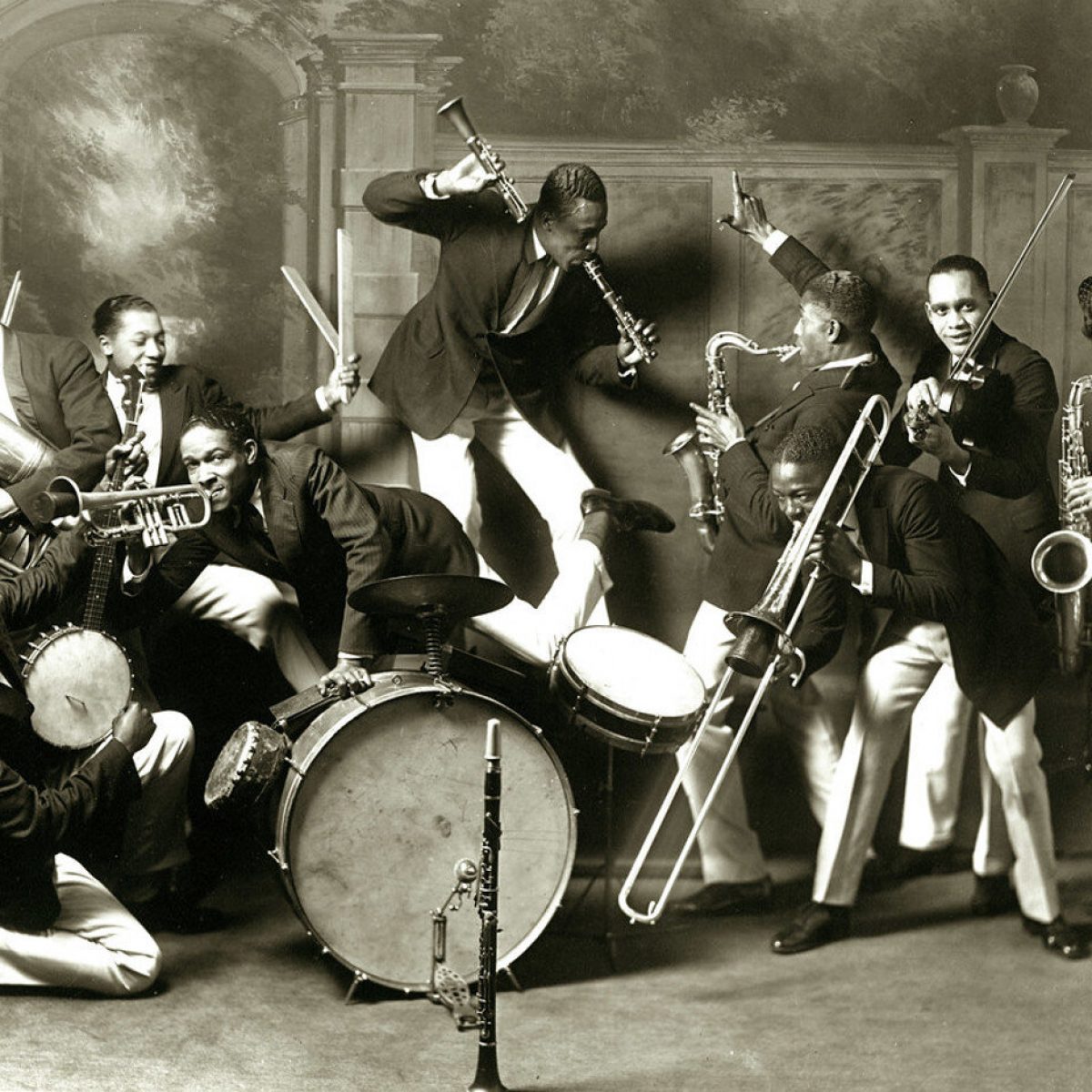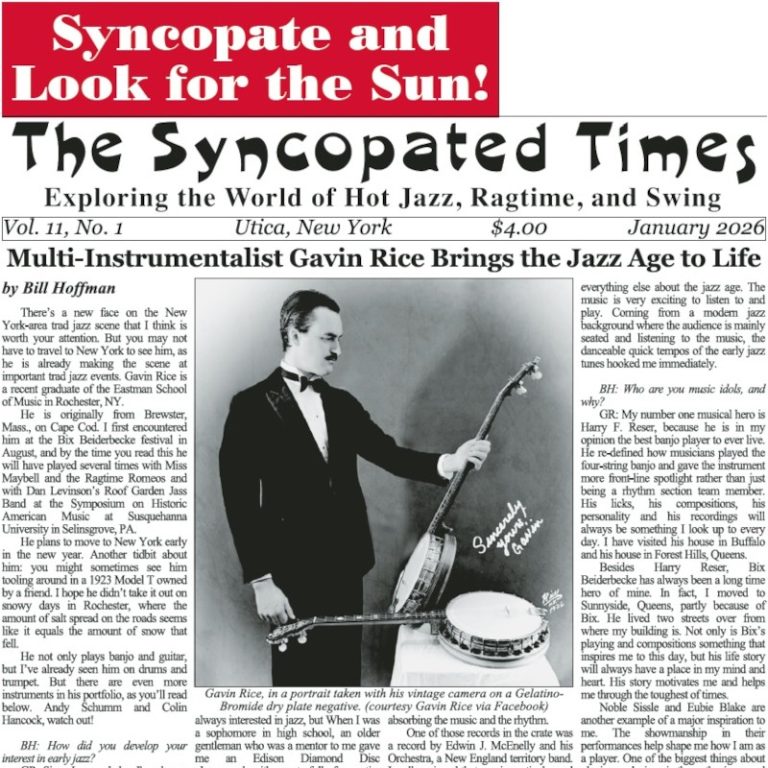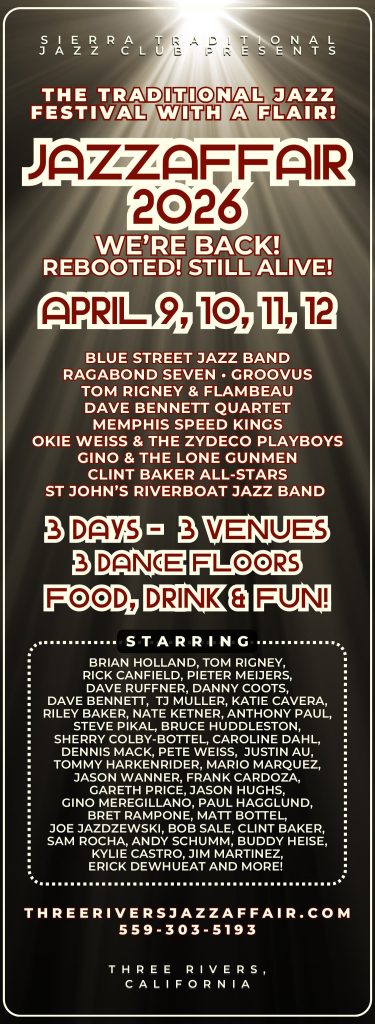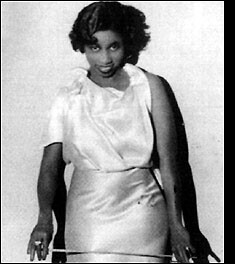 Lil Hardin-Armstrong (February 3, 1898 – August 27, 1971)was the most prominent woman in early jazz. She played piano, composed, and arranged for most of the important Hot Bands from New Orleans.
Lil Hardin-Armstrong (February 3, 1898 – August 27, 1971)was the most prominent woman in early jazz. She played piano, composed, and arranged for most of the important Hot Bands from New Orleans.
While working at a music store in Chicago, she was invited to play with Sugar Johnny’s Creole Orchestra, from there she went to Freddie Keppard’s Original Creole Orchestra, and then led her own band at the Dreamland Cafe at 3520 South State Street in Chicago.
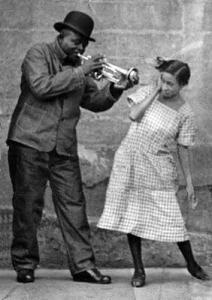
In 1921 she joined King Oliver’s Creole Jazz Band where she met Louis Armstrong. They were married in 1924. Lil was Louis Armstrong‘s second wife and she is generally credited with persuading Louis to be more ambitious, and leave King Oliver’s Creole Jazz Band.
Lil was a major contributor to Louis Armstrong’s Hot Five and Hot Seven recordings. She played piano and sang occasionally, and composed several of the groups major songs, including “Struttin’ with Some Barbeque.” Lil was the leader of several other recording groups, including Lil’s Hot Shots and the New Orleans Wanderers.
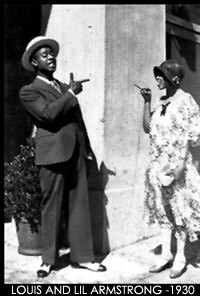 She and Louis were separated in 1931 and were divorced in 1938, although they remained friends for life.
She and Louis were separated in 1931 and were divorced in 1938, although they remained friends for life.
Lil appeared in several Broadway shows including “Hot Chocolates” and “Shuffle Along”.
In the late 1930s Lil recast herself as a Swing vocalist and cut 26 vocal sides for Decca records. In the 1940s she moved back to Chicago and played as a soloist in nightclubs. She continued to record sporadically up until 1963, often with the old gang of New Orleans/Chicago musicians like Johnny Dodds, Red Allen, Zutty Singleton, Frankie “Half-Pint” Jaxon, Lonnie Johnson, Buster Bailey, Natty Dominque, Lovie Austin, and Sidney Bechet.
Lil kept active in the music business for the rest of her life, although far from the limelight. Strangely enough, Lil died while taking part in a Louis Armstrong Memorial Concert in Chicago while playing “St. Louis Blues”, just two months after Louis had died.
| Title | Recording Date | Recording Location | Company |
| East Town Boogie (Lil Armstrong) |
1947 | Chicago, Illinois | Eastwood 101 1181 |
| Little Daddy Blues (Lil Armstrong) |
1947 | Chicago, Illinois | Eastwood 1182 |
| Rock It | 1947 | Chicago, Illinois | Eastwood 1183 |
| Walking On Air (Lil Armstrong) |
1947 | Chicago, Illinois | Eastwood 102 1180 |
| Just For A Thrill; Lil Hardin Armstrong, First Lady Of Jazz by James L. Dickerson, Cooper Square Press, 2002 |
Redhotjazz.com was a pioneering website during the "Information wants to be Free" era of the 1990s. In that spirit we are recovering the lost data from the now defunct site and sharing it with you.
Most of the music in the archive is in the form of MP3s hosted on Archive.org or the French servers of Jazz-on-line.com where this music is all in the public domain.
Files unavailable from those sources we host ourselves. They were made from original 78 RPM records in the hands of private collectors in the 1990s who contributed to the original redhotjazz.com. They were hosted as .ra files originally and we have converted them into the more modern MP3 format. They are of inferior quality to what is available commercially and are intended for reference purposes only. In some cases a Real Audio (.ra) file from Archive.org will download. Don't be scared! Those files will play in many music programs, but not Windows Media Player.


